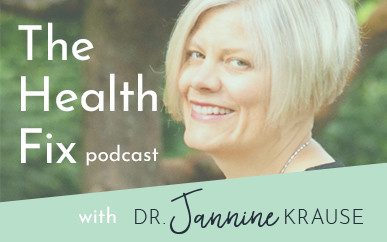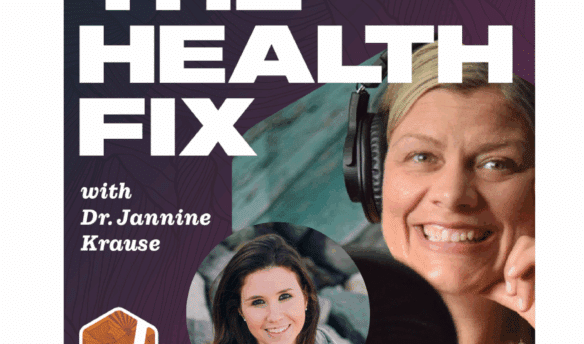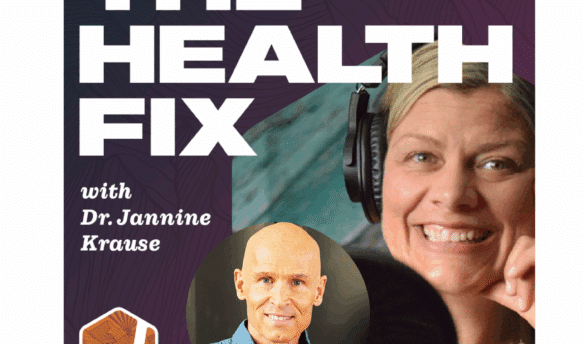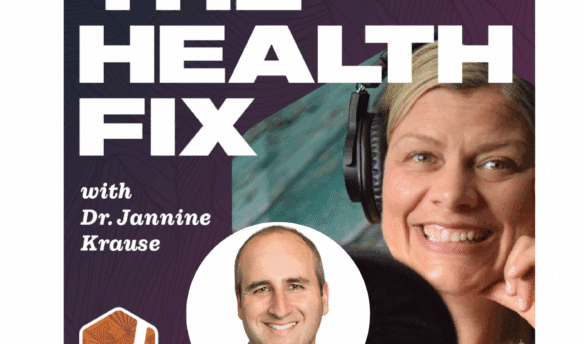More than 50 million Americans have a thyroid disorder while up to 105 million Americans have a metabolic syndrome. Chances of obesity and metabolic syndrome in those with thyroid disorders is increased over time. Chronic stress and infections are at the core of thyroid issues. Long term cortisol elevation suppresses immune system function and fatigues the pituitary gland so it’s signaling becomes impaired. Eventually under functioning thyroids lead to reduced glucose uptake into cells and slowed insulin response. Glucose is stored as fat and energy declines as it’s not being used effectively by cells for energy. In this podcast Dr. Jannine Krause answers a podcast listener’s question as to how to manage blood sugar issues with hypothyroidism and restore metabolism to prevent weight gain.
What You’ll Learn In Today’s Episode:
• Why a slowed thyroid reduces glucose uptake to cells
• Why stress reduction is crucial for proper blood sugar balance
• How to restore your blood sugar balance
• How to improve thyroid function and metabolism
Resources from the Show:
• Izabella Wentz – The Thyroid Pharmacist – Blood Sugar Imbalances and Hashimoto’s
• Precision Nutrition – Managing Blood Sugar
• Dr Krause’s Recommendations for Lab Tests to assess your blood sugar processing and thyroid: TSH (thyroid stimulating hormone), Free T4 (hormone directly out of the thyroid), Free T3 (hormone converted by thyroid peroxidase from T4 – 20% liver, 20% gut and 60% tissues of the body), Anti-TPOs (thyroid peroxidase antibodies), thyroglobulin antibodies, insulin (fasting), hemoglobin A1c (ICD-10 coding if you need it – R73.09 – abnormal blood glucose and E16.2 hypoglycemia – these are codes for insurance to help pay for your blood sugar tests)
• Dr Krause’s Recommendations for Determining Your Carbohydrate Tolerance:
Test your morning fasting blood sugar (at least 10 hours after your last meal) daily in addition to 1-2 hours after meals with carbohydrates to determine your carbohydrate tolerance.
Blood Sugar Ranges:
Normal range for fasting blood glucose as 75 – 95 mg/dL. 100 is often considered the cutoff for normal blood sugar.
Fasting blood sugar levels in the mid-90s are predictive of development of diabetes in 10 years.
Blood sugars of 70-80 are NORMAL and 70-85 is ideal.
Postprandial blood glucose. This is a measure of your blood sugar 1-2 hours after a meal.
Anything over 126 mg/dL is abnormal after a meal. A normal after meal (postprandial) blood sugar is under 100 mg/dL two hours after a meal.
If you are Hypoglycemic= YOUR GOAL is to keep your blood sugar above 75 throughout the day. Eat a low-to-moderate carbohydrate diet (to prevent the blood sugar fluctuations I described above), and eat frequent, small meals every 2-3 hours (to ensure a continuous supply of energy to the body. NOTE: you will have to play with the amounts of carbs to proteins to fats to see what ratio has you feeling the best and is keeping your blood sugar in check.
To determine your carbohydrate tolerance get a GLUCOMETER and test your blood sugar after A VARIETY OF meals. Test at 1 and 2 hours for the same meal.
If you’ve GONE BEYOND YOUR CARB TOLERANCE, your blood sugar will remain above 120 mg/dL two hours after your meal.
Items You Need to Test Your Blood Sugar:
– Contour Next One Glucometer
– 100 test strips for the Contour Next One – on Amazon
– Care Touch Multicolor lancets 300 count- Amazon
– Blood sugar journal – I recommend a notebook so you can note – mood and energy levels in addition to food, drinks and blood sugar
Enjoy The Show? Never Miss An Episode
• Subscribe, Rate and Review the show in iTunes
• Subscribe via Stitcher or RSS feed
• Send us feedback via Email
• Leave a comment below
Want to learn more about how to optimize your health? Click Below Now!





